
「そんままでよかじゃなか」に救われ、水俣でもがき暮らす/高倉 鼓子
「そんままでよかじゃなか」に救われ、水俣でもがき暮らす
Saved by the words, “It’s fine just the way you are”, I live in Minamata, struggling along.
 生まれ育った水俣に帰ってきて7年がすぎました。現在33歳です。「水俣病」について、積極的に自分の思うことを語るようになってからは、私はまだそんなに日が経っていません。水俣病事件に深く関わったこともなく、親族にも水俣病の患者はいません。けれど、親がいわゆる「水俣病患者支援者」であることから、幼い頃から患者家族との交流がありました。当時は「お兄ちゃん、お姉ちゃん」のような存在だった彼らが、胎児性水俣病患者や未認定の被害者であると認識したのは、大学で水俣病についてのレポートを書いたことがきっかけです。そのぐらい私は無知で、無関心でした。
生まれ育った水俣に帰ってきて7年がすぎました。現在33歳です。「水俣病」について、積極的に自分の思うことを語るようになってからは、私はまだそんなに日が経っていません。水俣病事件に深く関わったこともなく、親族にも水俣病の患者はいません。けれど、親がいわゆる「水俣病患者支援者」であることから、幼い頃から患者家族との交流がありました。当時は「お兄ちゃん、お姉ちゃん」のような存在だった彼らが、胎児性水俣病患者や未認定の被害者であると認識したのは、大学で水俣病についてのレポートを書いたことがきっかけです。そのぐらい私は無知で、無関心でした。
Seven years have passed since I returned home to Minamata, where I was born and raised. I’m 33 years old now. It’s not been that long since I began to actively speak out about what I think about “Minamata disease”. I have never had a deep involvement in the Minamata disease case, nor do I have any relatives suffering from it. However, since my parents are so-called “the Supporters for Minamata disease patients,” I have been in contact with Minamata disease patients and their families through my life. When I was a child, I used to recognize the patients just as “big brothers and sisters”. After I entered college outside Minamata, I had a chance to write a report on Minamata disease. Only then did I realize that they were the patients with congenital form of Minamata disease and some of them were even the victims not-yet certified as the subject to public salvation. I had been this ignorant and indifferent about Minamata disease in my youth.
水俣にUターンし、親の仕事を引き継ごうと、水俣病患者家族が栽培する甘夏みかんの販売に関わるようになってようやく、水俣病事件とは何なのかを深く学び始めました。数々の証言や記録に触れては、知らなかったことへの罪悪感と、どうしようもない怒りが溢れ、私は水俣で何を見て何を見ないできたのだろうと悶々としました。モヤモヤを抱えながらも、当事者ではあるけれど中心からは距離がある、そんな私に語れることとは何だろうかと考えるようになりました。2年前、兄と二人で福島に招かれ、思いの丈を語る場を設けていただきました。印象的だったのは参加された方々が、私たちに未来の福島の子どもたちの姿を重ねておられたこと。次世代が水俣病事件をどのように語り継ごうとしているのか、期待と不安、両方のまなざしを感じました。それはつまりこの10年間、福島の方々が「語ること」を求められ続けたからかもしれません。ある方は「子どもたちの語りを、大人が求めること」への違和感を強く持っておられました。
After I made a U-turn to Minamata to take over my parents’ business, I became involved in the sales of sweet summer oranges grown by the patients’ families. I finally began to learn in depth what the Minamata disease case was all about. When I came in contact with numerous testimonies and records, I was filled with guilt and helpless anger for not knowing, and I agonized over what I had seen and what I had not seen in Minamata. On one hand, I was in anguish, and on the other hand, I knew my standpoint of being a participant in all this, but also being away from the center of it. Being in this position, I began to think about what I could say about the Minamata disease case. Two years ago, my brother and I were invited to a conference in Fukushima. At the conference, we were given the opportunity to express our full thoughts and feelings about Fukushima and its disaster as well as Minamata and its disease. What struck me the most was that the people who participated in the conference saw in us the children of Fukushima in the future. I felt that they were looking at us with a mixture of hope and anxiety, wondering how the next generation of Minamata disease survivors like ourselves were going to tell the story of the Minamata disease case. The reason they look at us that way may be because the people in Fukushima have been constantly asked to “tell their stories” for the past 10 years. I remember one of the participants showed a strong sense of discomfort with the idea of adults demanding their children perform their narratives.
以前、水俣病資料館語り部の会の川本愛一郎さんが「自分が中高生だった頃の話をする際、毎回フラッシュバックを起こす」と話されていたのを思い出します。「普段は意識の底に押し込めているトラウマを、意志の力で引き出して言葉にすることで、少しずつ昇華しているのかもしれない」とも。この言葉は私の中に強く残っています。震災に津波に原発事故。天災と人災、そして現在進行形の複雑な問題について、10年という歳月は俯瞰して語るには短すぎるかもしれません。福島を語ることを続けておられるかたは、その責任感から身や心を削り、あるいはトラウマを乗り越えるために、求めに応じて語ることを選んでいるのではないかとも思います。それはすごいことであると同時に、福島出身だからと「原発をどう思うか?」や「震災や津波の経験」を問われ、口を閉ざす人の姿も想像します。
Mr. Aiichiro Kawamoto, a storyteller of the Minamata Disease Museum Storytellers’ Association, once said to me, “I get flashbacks every time I talk about my junior high school and high school days.” He also said, “It may go like this. I usually keep the trauma pushed into the bottom of my consciousness. When I talk about my school days, I draw it out and put it into words by the force of my own will. By doing so, I may have been sublimating the trauma little by little.” These words left a strong impression on my mind. Here is a farmer of sweet summer oranges whom I trust with all my heart. Many of his family members have been affected by Minamata disease, but he rarely talks about it. At first, I wondered why he wouldn’t talk about the Minamata disease case, which caused so much harm to his family. One day, I confided in him, “I feel a sense of shame and guilt about telling the story of what I did not experience in order to explain what damage Minamata disease caused. He said, “For me, the story of Minamata disease is a story of my dearest family. I love my family, and I cherish them. That’s why I can’t talk with others about Minamata disease. But if I were in your shoes, I would talk about it. So it’s fine just the way you are. The thing is I can’t speak out yet because it’s about my family and it’s fine with me.”
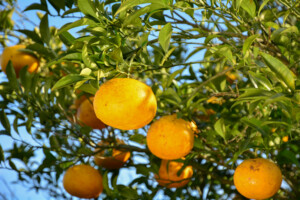 私には深く信頼している甘夏の生産者がいます。その方はご家族の多くが水俣病の被害に遭われていますが、ご自身の体験をほとんど語られません。当初はなぜだろう?と思っていました。あるとき私が「自分で体験していないことを、水俣病の被害を伝えるために語ることについて、引け目と申し訳なさを感じている」と相談したところ、その方はこうおっしゃいました。「俺にとっては家族のことだけん、大事にしたいと思うから、話せんと。やばってん(だけど)、俺があんたの立場だったら話すと思う。だからそんままでよかじゃなか。俺にはまだできんと。自分の家族のことだけん」。
私には深く信頼している甘夏の生産者がいます。その方はご家族の多くが水俣病の被害に遭われていますが、ご自身の体験をほとんど語られません。当初はなぜだろう?と思っていました。あるとき私が「自分で体験していないことを、水俣病の被害を伝えるために語ることについて、引け目と申し訳なさを感じている」と相談したところ、その方はこうおっしゃいました。「俺にとっては家族のことだけん、大事にしたいと思うから、話せんと。やばってん(だけど)、俺があんたの立場だったら話すと思う。だからそんままでよかじゃなか。俺にはまだできんと。自分の家族のことだけん」。
Here is a farmer of sweet summer oranges whom I trust with all my heart. Many of his family members have been affected by Minamata disease, but he rarely talks about it. At first, I wondered why he wouldn’t talk about the Minamata disease case, which caused so much harm to his family. One day, I confided in him, “I feel a sense of shame and guilt about telling the story of what I did not experience in order to explain what damage Minamata disease caused. He said, “For me, the story of Minamata disease is a story of my dearest family. I love my family, and I cherish them. That’s why I can’t talk with others about Minamata disease. But if I were in your shoes, I would talk about it. So it’s fine just the way you are. The thing is I can’t speak out yet because it’s about my family and it’s fine with me.”
この「そんままでよかじゃなか」(そのままでいいんじゃないかな)に、私は救われました。だから今、福島で「語ることの苦しさ」「語れなさ」を抱えているかたにも「そんままでよかじゃなか」とお伝えしたいです。本来は個人的なものであるはずの語りを、出来事を風化させないためにと伝え続けてくださる皆さんに敬意を表しつつ、誰にも話さず胸にしまっておく選択も尊重したい。そしていずれ私のように、悩みながらも語り出す次の世代があらわれたときに「そんままでよかじゃなか」と背中を押せる存在でありたいです。これからの長い年月も、福島と水俣が互いに問いを投げかけ合い、語り合い、語りが続いていくことを願って、私は水俣でもがき暮らします。
I was saved by this line, ” It’s fine just the way you are”. So I would like to tell the people in Fukushima, if they are suffering from “the pain of not being able to speak out” and “the inability to speak out”, that “it’s fine just the way you are”. I truly respect those who continue to tell their stories, which are supposed to be personal, in order to keep the memories of what happened alive. And at the same time, I also respect another choice not to tell anyone about what happened and keep the stories to themselves. When the next generation like me comes along and speaks out with their worries, I want to be there to give them a push and say, “It’s fine just the way you are.” I hope that Fukushima and Minamata will continue to mutually question each other, talk to each other, and tell each other’s stories for many years to come. I myself will continue to live in Minamata, struggling along the way.
2022,8,28
Written on August 28, 2022
Writer Tsuzumiko Takakura
ライター/高倉鼓子
 水俣生まれ水俣育ち。20代で帰郷し、水俣病患者とその家族が作る甘夏みかんの販売事務に従事している。自身も生産者として、農薬と肥料を使わない甘夏栽培に挑戦中。
水俣生まれ水俣育ち。20代で帰郷し、水俣病患者とその家族が作る甘夏みかんの販売事務に従事している。自身も生産者として、農薬と肥料を使わない甘夏栽培に挑戦中。
生産者グループきばる:https://kibaru-mikan.net
Born and raised in Minamata. Returned to hometown in 20s. While as a salesclerk for sweet summer oranges produced by Minamata disease patients and their families, growing sweet summer oranges using natural cultivation methods that use no pesticides or fertilizers.
Producer Group KIBARU:https://kibaru-mikan.net
コメント ( 0 )
トラックバックは利用できません。











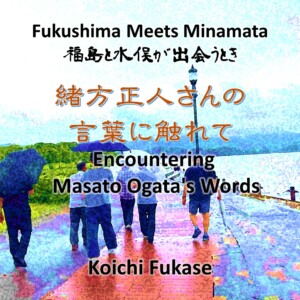
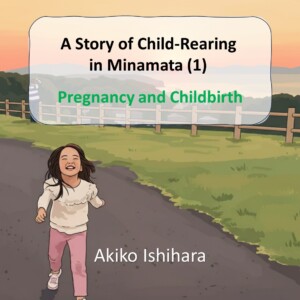
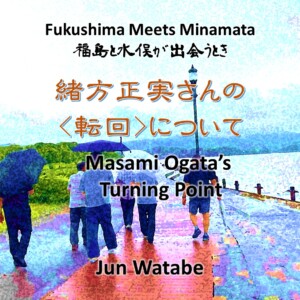
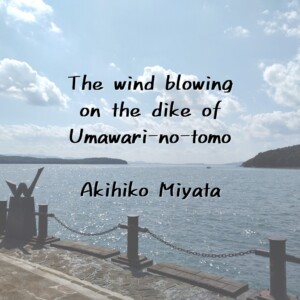
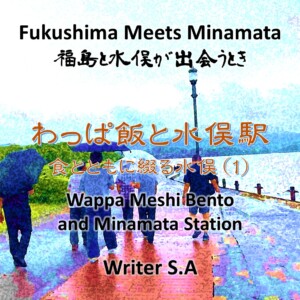
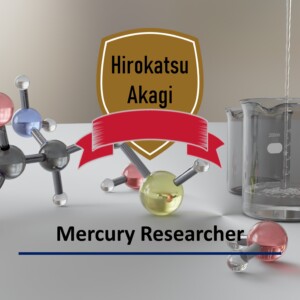
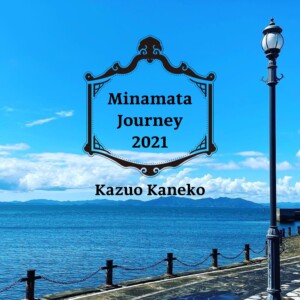
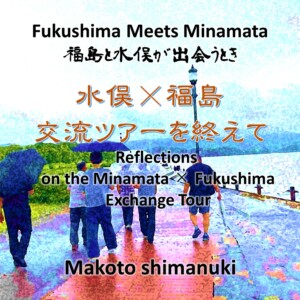
この記事へのコメントはありません。